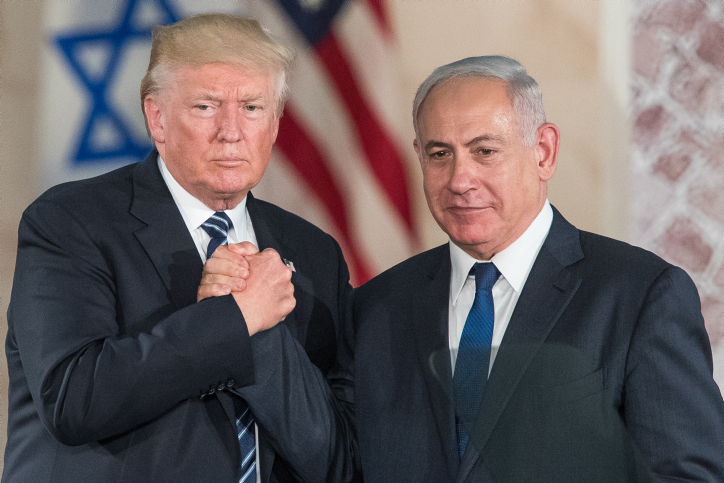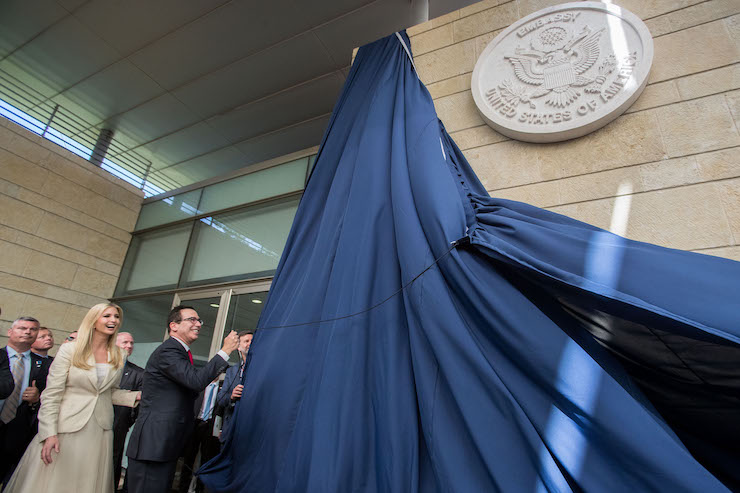Netanyahu may have succeeded in convincing Israelis that facts on the ground can defeat Palestinian national aspirations. He forgot to tell them that holding millions under endless occupation is unsustainable.
By Susie Becher

Regardless of whether Prime Minister Benjamin Netanyahu makes good on his promise to annex areas of the West Bank during his new term in office, the very fact that he made such a statement is damaging. Together with his friend in the White House, Netanyahu has been slowly whittling away at the principles that are internationally recognized as the basis for any Israeli-Palestinian peace agreement. By uttering the word “annexation,” he has shattered yet another taboo, borrowing the unfathomable from the domain of the extreme right wing and inserting it into the heart of the public discourse on the conflict.
Netanyahu has succeeded in lulling the Israeli public into believing that facts on the ground can defeat Palestinian national aspirations and outweigh international law. Helping him surgically remove the occupation from the body politic is Chief Anesthesiologist Donald Trump. Working hand in hand, these two are marketing “alternative facts” that the public is buying hook, line, and sinker.
First came Trump’s declaration that the United States’ recognition of Jerusalem as the capital of Israel took the issue off the table. Then the word “occupied” was expunged from State Department documents dealing the occupation and replaced with the term “controlled.”
Next, we heard the president say that extending Israeli sovereignty to the Golan Heights will improve Israel’s ability to meet security challenges, while Netanyahu added the lie that a country can lay claim to territory captured in a defensive war. This was followed by Trump’s statement that a Netanyahu victory in the elections will be good for peace. And finally, we heard Secretary of State Pompeo say that Bibi’s annexation plans won’t hurt the chances of the so-called “Deal of the Century.”
One could scoff at a delusional leader who thinks that his pronouncements become truth just because he said so. But there is great danger in the public’s acceptance of these distortions as conventional wisdom, even if they are easily dispelled.

Trump didn’t take Jerusalem off the table; he moved it to center stage. The EU and United Nations were quick to condemn the U.S. move and reassert that the status of the city must be resolved through negotiations between the parties. Even Pope Francis felt compelled to voice his alarm.
In some parallel universe, there might be truth to Trump’s statement that by recognizing Jerusalem he is advancing the peace process, but those of us who live in the real world know that the Palestinians will never accept Israeli sovereignty over the eastern part of the city. The good news is that despite Netanyahu’s expectations that Highway 1 would be jammed with vans moving embassies from Tel Aviv to Jerusalem, to date, only Guatemala has followed in the steps of the United States.
And no matter what euphemisms the State Department may use, the West Bank is not simply under benign Israeli administration. According to the Hague Regulations, which are considered the embodiment of the rules of customary international law, occupation applies to territory that is under the authority of a hostile army. Add to that the fact that well over 600,000 Jewish Israeli settlers are living in the West Bank in defiance of international law, and then consider that the Palestinians are subjected to restrictions on freedom of movement, land expropriations, home demolitions, expulsions, and the list goes on.

As for the Golan, according to international law an occupying power cannot apply sovereignty regardless of whether the territory was captured in a defensive or offensive war. Even those who lament the failure of previous peace negotiations with Syria recognize that now is not the time for another attempt, and most agree that the Iranian presence in Syria has increased the threat to Israel’s security.
However, Israel is not under any pressure to withdraw its troops at this time. The security challenges Israel is facing are sufficiently met by its current military deployment in the north. The meaningless U.S. recognition of Israeli sovereignty actually did nothing other than poke a slumbering bear and set the stage for the annexation of the West Bank.
And then we come to the laughable statement that Netanyahu’s reelection will be good for peace. Peace with whom? During Netanyahu’s previous term, the Knesset passed several laws tightening Israel’s hold over the occupied territories. Now Netanyahu is intent on putting together an even more extremist government that may broaden Israel’s cozy relations with the European far-right and its ilk that will bury any chance of peace with the Palestinians.
The one statement that may actually hold water is Pompeo’s. The reason that annexation won’t hurt the Trump deal is because, according to media reports, the “Deal of the Century” is not a peace accord — it’s a business plan that includes economic incentives and some degree of administrative autonomy for the Palestinians. If an independent Palestinian state and an Israeli withdrawal from the West Bank are not part of the package, formalizing the occupation through annexation won’t make the situation on the ground much worse, but it will mean the death of the two-state solution. That, however, apparently won’t interfere with Trump’s plan for the region.
The fact that Israel has been getting away with flouting international law and that the U.S. administration is legitimizing Israeli decisions does not mean that the future is bright. Netanyahu and Trump are selling the public a load of hogwash. The zeitgeist according to ‘Trumpanyahu’ is about recognizing reality, but the duo is hiding the most important fact: the oppression of the Palestinian people is unsustainable (never mind untenable!) long term, and if the occupation doesn’t end through diplomacy, it will end in a bloodbath.
Susie Becher is a member of the Policy Working Group and Managing Editor of the Palestine-Israel Journal.
